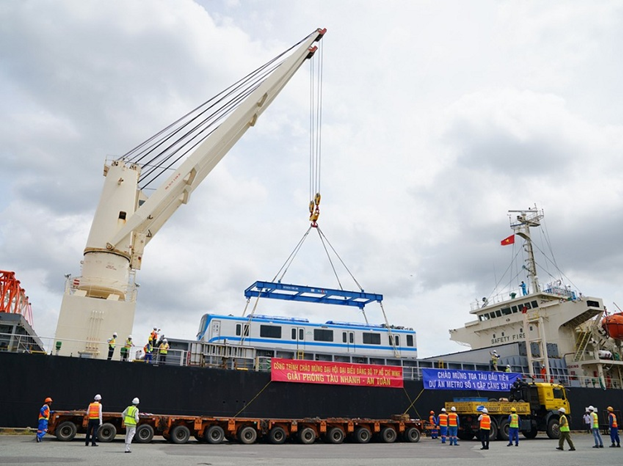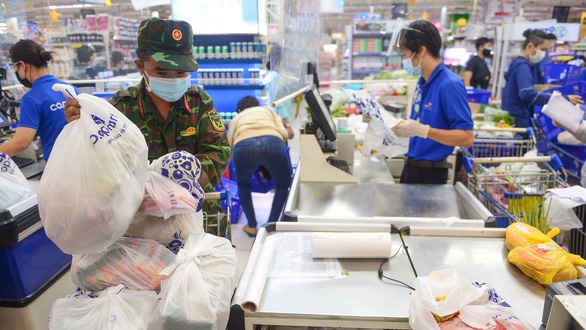 Economy
Economy

Supermarkets, convenience stores and food stores, as well as online delivery services, in HCM City will be allowed to operate from 6am to 9pm daily beginning September 9 during the current period of social distancing.

|
| Supermarkets in HCM City prepare to reopen after a temporary closure of several weeks during social distancing. — Photo tuoitre.vn |
HCM CITY — Supermarkets, convenience stores and food stores, as well as online delivery services, in HCM City will be allowed to operate from 6am to 9pm daily beginning September 9 during the current period of social distancing.
However, only residents in districts 7 and Củ Chi, which have been able to keep COVID-19 under control, are allowed to shop for food and essentials once a week at stores. Each household will receive tickets that permit weekly food shopping.
Residents in the remaining districts must rely on online delivery or assistance from the military and others.
The People’s Committee has instructed the Department of Trade and Industry and large supermarket chains like Co.opmart, Lotte, Bách Hóa Xanh and Vinmart to work with authorities in all 21 districts and Thủ Đức City to ensure distribution of goods.
Employees at these food and grocery businesses must have received at least one dose of COVID-19 vaccine and be tested for COVID-19 every two days (using rapid antigen method for each individual, or pooled samples of three persons).
Shippers are allowed to operate in "very high-risk" (red zone) districts only if they undergo rapid COVID-19 tests every day. Shippers in the remaining districts (orange and green zones) must take rapid tests twice a week.
The average daily consumption in the city with a population of nearly 10 million is nearly 11,000 tonnes of rice, meat, fruits, vegetables and processed foods.
The city has 92 supermarkets, 2,100 convenience stores and 522 grocery stores. — VNS
Production of goods plummets in some sectors in HCM City The index of industrial production (IIP) of a number of sectors in HCM City last month fell by 70-80 per cent, and total revenue from retail trade and services decreased by more than half compared to the same period in 2020. Problems in domestic and international markets and prolonged social distancing in the city have caused a shortage of raw materials for production, directly affecting the city's IIP, according to a report from the city’s Department of Industry and Trade. The report found that the IIP of the wooden processing industry last month fell by 85.6 per cent, leather and footwear industry by 80.9 per cent, and the weaving sector by 71.5 per cent. The IIP of the remaining sectors, including food production and processing, electrical equipment production, rubber and plastic production, dropped by 25-40 per cent. VNS |




